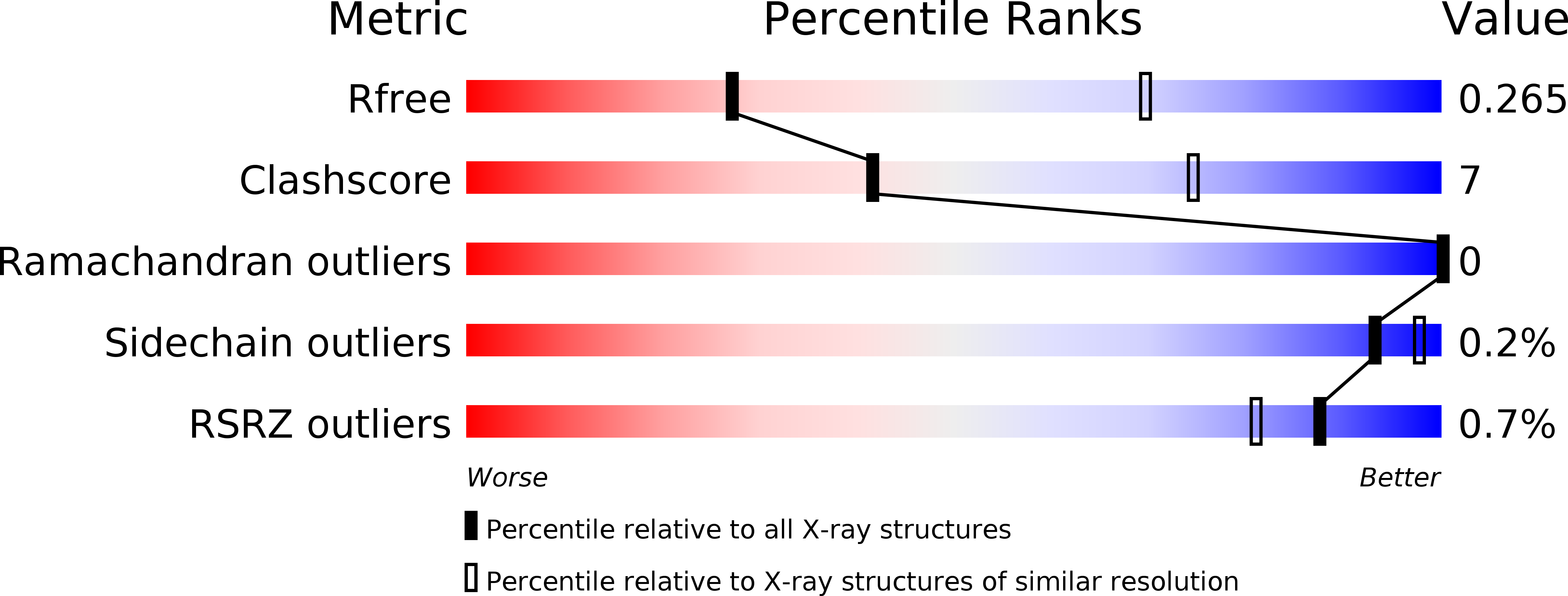
Deposition Date
2018-08-22
Release Date
2019-02-27
Last Version Date
2023-10-11
Entry Detail
PDB ID:
6M8R
Keywords:
Title:
Crystal structure of the KCTD16 BTB domain in complex with GABAB2 peptide
Biological Source:
Source Organism(s):
Homo sapiens (Taxon ID: 9606)
Expression System(s):
Method Details:
Experimental Method:
Resolution:
3.20 Å
R-Value Free:
0.26
R-Value Work:
0.21
R-Value Observed:
0.22
Space Group:
P 1 21 1


